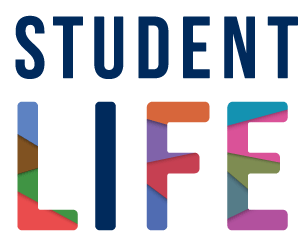Updated November 7, 2024
By Sarah Ryeland Etienne
1. Stay nourished
Eating healthy foods can help you tackle hard tasks, improve mental performance and stay energized. Drink lots of water, eat breakfast, plan balanced snacks, and eat small, frequent high-protein meals.
Resource: Mindful Eating workshop
2. Understand your exams in advance
Make sure you know when each exam is happening and in what format. Find out which memory aids you can bring in and the topics you’ll be tested on.
Resource: Exam Prep workshops

3. Get enough sleep
Healthy sleep habits improve your performance, recall and mood. Try following a regular sleep schedule in the week before exams in a cool, dark and quiet space. Unplug at least an hour before bed, watch your caffeine intake and move your body first thing in the morning if you can.
Resource: Sleep Well workshops
4. Know yourself and the tasks
Identify how well you know each component of your course content and develop SMART goals to guide your studying. Breaking down your tasks into manageable steps and having clear goals can reduce your stress and increase motivation.
Resource: Goal Setting and Motivation
5. Find balance
A balanced life can help you work more sustainably, feel energized and improve concentration. When creating your study plan, include time for self-care, or activities you find fun and relaxing. Creating “off-hours” is a great way to set boundaries for your study hours.
Resource: Balanced Living workshop
6. Fill in knowledge gaps and questions
Reach out for help from instructors, TAs and classmates to find answers your questions and social support.
Resource: Talk to Your Professors
7. Manage stress
The key to managing stress is taking action, and being able to use self-care and coping strategies. Try practicing mindfulness or intentional breathing to reduce your feelings of anxiety and frustration.
Resource: Mindful Moments, Better Coping, Breathe Well
8. Make a plan
Create and follow a study schedule, making sure to include times to de-stress. Remember that developing good study methods and time management skills takes time and practice, so start early.
Resource: Studying, Concentration and Memory
9. Practice, practice, practice
Take advantage of the Old Exam Repository and any practice questions available. You can also answer questions of your own or study with classmates: test each other on your knowledge of the material.
Resource: Old Exam Repository
10. Seek support
If your feelings are causing significant stress or affecting your daily functioning, or if these feelings are intensifying and persisting for long periods, it’s important to ask for help.
Contact your health-care provider or Health & Wellness for individual support. You can also reach out to U of T Telus Health Student Support (formerly U of T My SSP), Good2Talk, or Health & Wellness Peer Support for more immediate assistance.




